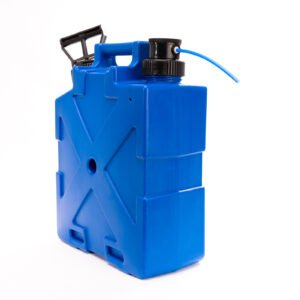Forward Osmosis: What it is and how its used
Forward osmosis is a process using a special water-permeable membrane, which separates water from substances or contaminates contained within it. It works using osmotic pressure, which is created by placing solutions of two different concentrations side by side. The first of these is termed the draw solution, which tends to pull in the feed solution due to its higher concentration. The membrane rests in the middle, and as the feed solution flows through it, it strains the unwanted particulates out of the water. These contaminates or undesirable substances are classified as solutes, because they are dissolved in the water itself.
What is the difference between forward osmosis, and the more well-known process of reverse osmosis? In reverse osmosis, rather than relying upon solutions of different concentrations to drive the cycle, it is powered from an outside force instead. This is necessary, because reverse osmosis forces the higher concentration solution to flow back into the less concentrated one – against the osmotic gradient.
Forward osmosis is far simpler, typically being a one step process, relying upon the solutes alone to carry out the job. These solutes trade places as the filtration occurs, which can produce drinkable water in many cases. Take water from a stream, lake or river with harmful contaminates contained within it as an example. Benign solutes will be in the draw solution, which are safe to ingest. These will take the place of the unwanted particles in the river water, making it potable and safe to drink.
The ease of the mechanism has made forward osmosis a popular choice for portable water filtration, as only gentle stirring or suction is needed. Products intended for backpackers are especially numerous, and these use solutes such as fructose or glucose which can be readily ingested. Thus, the pathogens in the outdoor water sources the hikers select, will be replaced with beneficial sugars instead. Often, a water bottle with a special straw is the form that is offered, as the suction speeds the forward osmosis process. Other units rely upon osmotic pressure alone, though these take a bit longer to perform the operation.
Another product which uses forward osmosis as its base, are special hydration bags for survival situations. These are issued to combat forces in desert regions, as they allow them to filter their own urine and create drinkable water. Even seawater could be successfully filtered using this approach in theory, and it has gained some interest for use in life boat emergency kits.
However, when it comes to desalination, a second step is usually added for better results. Most often, forward osmosis is allowed to take place with the seawater, and then the resulting solution is subjected to a secondary filtration method. There are many options available today, such as using another specialized membrane or heat to finish the job.
What are the benefits of this approach? Much of the salt is removed by the forward osmosis, allowing the equipment used in the rest of the process to run far smoother overall. Salt water has a reputation for causing mechanical issues, and desalination plants using reverse osmosis as their first step often run into problems.
The only downside to forward osmosis is that the draw solutes end up in the filtered water, and a second step is necessary to remove them. However, this isn’t required when solutes which are safe to ingest are used. As amply demonstrated by the above discussion, this is a small limitation, as forward osmosis has many practical applications due to its simplicity. It has several advantages over reverse osmosis too, making it an excellent choice for removing harmful contaminants in a variety of different situations.


